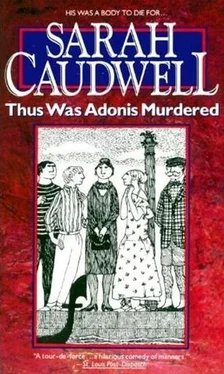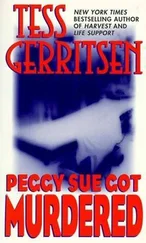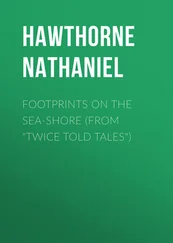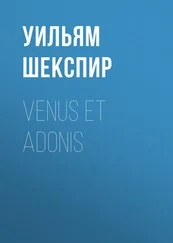Too late, too late, Selena, I recall your as always excellent advice, to keep my passport at all times in my handbag. Together with such other essential documents as my ticket, my traveller’s cheques, my Italian phrasebook, Ragwort’s Guide to Venice and my copy of this year’s Finance Act. Will any of these, do you think, be accepted as proof of my identity? Or am I doomed to be shuffled for ever between Venice and London, with occasional diversions, on account of administrative error, to Ankara and Bangkok?
“I would not wish,” I said, “to say that I told you so.”
“The postmark is Venice,” said Selena. “We may infer that the Finance Act was accepted in lieu of the passport.”
And that, I may say, is the optimistic view, assuming as it does that we actually get to Venice. The pessimistic view is that the aeroplane will be hijacked. There is sitting next to me a man of about fifty, of vaguely military appearance, who looks the type for such an undertaking: his suntan is too deep to have been acquired in England; his white moustache bristles piratically; his blue eyes are of a fanatic brightness. And he is wearing Bermuda shorts: these expose to public view his legs, which are hairy and prehensile, like those of a spider. A man who parades such legs as I have described in such clothing as I have mentioned on an aeroplane full of passengers — some of tender years, others perhaps of nervous disposition — that man, you will surely agree, Selena, is capable of any depravity. His hand luggage bears a distinctive label, similar to those given to me by the travel agency, proclaiming him to be, like me, an Art Lover. But one cannot be an Art Lover without some minimum of aesthetic sensibility. That minimum he lacks — for evidence, vide supra. I conclude that he is an impostor.
“Can’t bear spiders, poor grummit,” said Cantrip. “Did I ever tell you—?”
“Yes,” said Selena. “We have heard all about the spider episode, Cantrip, and we don’t want to hear it again. It’s a revolting story.”
“I thought it was rather witty,” said Cantrip.
“I gather,” said Ragwort, “that Julia didn’t.”
“No,” said Cantrip, rather sadly. “No, she didn’t, actually.”
It will not, I hope, be necessary, at any stage in my narrative, to disgust my readers with an account of the spider episode. I will say only that any exchanges of an erotic nature between Julia and Cantrip which may hereafter be referred to may be conclusively presumed to antedate the incident. Though, in all fairness, it does seem to me that a woman who retires for the night with Cantrip on the 31st of March in any year, forgetting that the following day — still, as I have said, I propose to draw a veil over the whole matter.
Mind you, Selena, when it comes to looking round for potential hijackers, I am by no means happy about the armour-plated matron on the other side of the gangway. I am suspicious of her coiffure — can any hair grown in nature be moulded to such iron symmetry? And can any lady so closely resembling the late Queen Boadicea be without military aspirations?
I notice with apprehension that she too is labelled as an Art Lover. Perhaps there is a conspiracy. In furtherance of some desperate enterprise, a band of ruthless extremists have disguised themselves as amateurs of the artistic and historical. I shall look round carefully and see if there are any more of them.
There is another Art Lover’s label a few rows back, on the other side of the gangway, attached to the shoulderbag of a rather pretty girl. Her hair is of the shade which you yourself favoured in the spring—“Harvest Moonlight,” I think, was what the manufacturers called it. She has that ethereal pallor which one associates with idealism: a large proportion of hijackings are committed by idealists.
There is a young man sitting next to her. They seem, though they do not converse much, to be travelling together. If so, then presumably he too is an Art Lover. His face is of the shape known in geometry as trapezoid: rectilinear but not rectangular, being wider at the jaw than across the forehead. His figure is of the same geometric form, but the other way up, being broader at the shoulders than the hips. Still, he is of clean and wholesome appearance and could be quite pleasing to look at; but he has a distrustful, peevish expression, as if on constant guard against someone pulling a fast one.
He is asking the stewardess just how much longer we’re going to have to wait here: his manner indicates that he expects an untruthful answer, his accent that he is an American. The proportion of hijackings committed by Americans is also very large.
The only other Art Lovers I can identify are two young men sitting some rows ahead of me. I would not have noticed them; but one has just stepped out into the gangway to allow the other to lift their hand luggage on to the luggage rack. (One is not supposed to put luggage in the luggage rack. They have been reproved by the stewardess.)
The one who did the lifting (up, and, following reproof, down again) is well suited to the task, having the physique of a more than usually muscular ox — rather like that Rugby full-back who was in love with you at Oxford, the reliable-looking one who was always threatening to commit suicide. His face, which was briefly turned in my direction, has a heavy, overcast sort of look, and eyebrows that almost meet. Not my sort of thing at all.
But the other — the one who stood aside to let the lifting be done — he looks like a more attractive proposition. His hair is an even paler shade than the blonde girl’s. And he is thin, very thin. He is wearing a rather beautiful wide-sleeved shirt of that coarse muslin material that Ragwort sometimes likes — I think it is called cheesecloth. He has adopted a most graceful and decorative attitude, leaning back against the top of the seat with just sufficient pressure to emphasize the charming hollow of the left hip. But I haven’t been able to see his face.
“Quite disgraceful,” said Ragwort.
“Taken her mind off getting hijacked, anyway,” said Cantrip.
“Aesthetic considerations,” said Selena, “have prevailed over concern for her personal safety. It reflects very well on her.”
“Aesthetic, forsooth,” said Ragwort.
The captain has announced that we are about to take off. He has recommended us to read the safety booklet. I have done my best; but it is all in pictures, with nothing to explain them. There is a picture of a female passenger sitting upright, then an arrow, then a picture of her leaning forward with her head in her hands. Is the only thing required of me in an emergency to lean forward and put my head in my hands? If so, I shall be equal to it. I may, however, be missing some deeper significance. The artist intends, perhaps, to depict an act of contrition — the lady is preparing to meet her Maker. That is a less agreeable idea.
Some miles above Paris.
Later.
Things are much improved. My lungs have been filled with health-giving nicotine. The due proportion of gin has been introduced into my bloodstream. I have been given food in little plastic trays. I have decided that the Art Lovers are not going to hijack the aeroplane.
The blonde girl, it is true, has still that translucent pallor which I associate with idealism. It now occurs to me, however, that it is more probably due to travel sickness.
The man sitting next to her may indeed be an American; but, though many hijackings are committed by Americans, it by no means follows that many Americans commit hijackings. One must avoid the fallacy of undistributed middle.
The armour-plated matron has vented her martial spirit in complaining to the stewardess about the food. She is displeased with both the quality and the quantity. Her views on the former would make her, one might think, indifferent as to the latter — but not so: she declares it uneatable and demands a second helping.
Читать дальше











